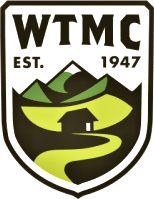- This topic is empty.
-
AuthorPosts
-
-
Simon WardGuest
Hi all
This week’s club meeting with Prof Alan Mark as guest speaker was only topped by the PM for turnout – about 130 people came along to hear about reform of high country South Island pastoral leases, and the increasing amount of land away from the traditional “Mountains and Bush” parks which is being preserved. Lots of interesting issues were raised –
*the Kaikoura National Park proposal
*commercial developmemt of high country areas
*foreign ownership of the high country
*commercial operations on DoC land – developments of track and huts
*biodiversity, soil and water conservationGet your thinking caps on and have an opinion on these issues!
Many members provided their contact details to Forest & Bird, offering to support this vital work – it’s really good to see a strong level of support from clubs like ours.Eric Pyle, the F&B Conservation Manager, will be back at club some time in the near future to talk about the plight of the Kiwi, our bizarre but threatened national icon. Look out for the announcement about that in the newsletter or on the web.
Simon
-
AndrewGuest
Its also worth pointing out that the Federated Mountain Clubs (FMC) Executive have, ever since I can remember, been heavily involved in the pastoral lease review (Allan Evans and Mike Floate being key players). Together F&B and FMC have made great inroads but theres heaps more to do. Nice to know your FMC affiliation fees go towards some concrete conservation gains.
-
WayneGuest
One thing that i could not understand from the talk was the opposition to ownership of high country land by foreigners coming to live in NZ, or invest in NZ. Really there was no explanation of which of conservation problems or issues that were outlined in the talk were due to ‘foreigners’ owning the land. (Most, if not all, of the conservation problems or issues outlined were probably due to NZers actions..)
I think there is a bit of nonsense to presume that foreigners owning NZ land will be worse than NZers. Who was it that introduced possums, rabbits, gorse, the rabbit virus a few years back into NZ? (were they foreigners – no…) It was claimed that 10% of high country land is owned by foreigners – but ive never had any access problems to any land owned by foreigners (only access problems i have had have been with NZer owners).
So im a little confused about this campaign by Forest and Bird. Its easier to blame ‘foreigners’ for NZ’s problems than to look at what NZers are doing wrong. (Bit like during the election campaign when there was mention about foreigners causing Auckland traffic problems – nuts).
Shame that the talk went on for so long – as there was no opportunity to debate or ask questions about some of the issues that were raised.
-
AndrewGuest
I’d probably share your sentiments to an extent Wayne, although one high profile foreign owner who had problems with the concept of access were the owners of Lillybank, Lake Tekapo. I’ve heard tales of some pretty nasty encounters. But like you say I’ve had more run ins with NZ landowners, some only being leaseholders of public lands
I think the issue is more having absent owners of high country land – that is people that own the land solely as a business venture or as a once a year spot to visit – they don’t actually live on the land. I wonder what sort of affinity such owners have with the land and whether they have an understanding of the backcountry traditions. Maybe its less likely that the owner would have these understandings if they haven’t lived here. But thats a dangerous assumption to make.
Some would say that rabbits, possum an gorse were introduced by foreigners – but lets not go there!
For me the gains in the pastoral lease process are to add to the conservation estate areas of land with good recreational/ecological potential that were always marginal farms/businesses.
-
Simon WardGuest
I think the main point was that foreign owners were excluding themselves from the land reform process (as is their right) therefore no land reform is happening in those areas. An interesting contrast here – the NZ landowners are returning non-productive land (with little perceived economic value) to the crown, whereas foreign buyers are paying big money for land that NZ’ers have deemed uneconomic. The related issue is that of game parks (mostly high country lease land) wanting Thar available as a game species (worth $10k a head), whereas some proponents in DoC want to get rid of all Thar ASAP.
Sorry I didn’t ask for questions, things had gone on long enough (and Alan had already given a talk that evening!).
Simon
-
-
AuthorPosts
